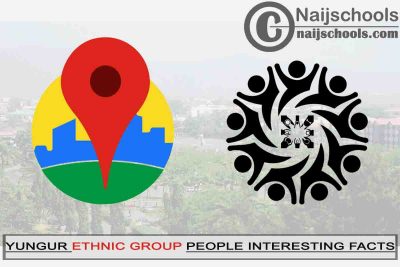This article contains 13 Interesting Facts About the People of the Yungur Ethnic Group in Nigeria. Firstly, the Yungur people are part of the northern tribes of the northeastern region of Nigeria. The Yungur people are also known as Bena. This is because of the dialect which they speak. They have three unique groups that classified the entire Yungur population.
The people belong to the Adamawa-Ubangi cluster and are also found in a single state in Nigeria. They are not widespread in their location. Continue reading to learn more of the Yungur people’s interesting facts.
13 Interesting Facts About the People of Yungur Ethnic Group in Nigeria
These interesting facts you are about to read about the people of the Yungur ethnic group in Nigeria will teach you about them;
1. State of Residence in the Country
Yungur people are an indigenous tribe in Nigeria found only in a single state, Adamawa state which is in the north-eastern part of Nigeria.
2. Local Government Area
They are an observable tribe in Guyuk, Gombi, and Song local government areas. A few of them have been recognized in Yola local government area.
3. Population; Interesting Facts About the People of Yungur Ethnic Group
As of the 2006 population census, the people’s population was 203,000 and now is still within the range of 200,000 people.
4. Language
The language of the tribe is Bena. Bena language is mainly spoken in the northern part of Adamawa state.
5. Religion
They have been Christians since the 1930s after the Missionaries introduced Christianity. Another notable religion is the Islamic religion but its practices are very few in size.
6. Ethnicity is One of the Interesting Facts About the People of Yungur Ethnic Group
Affinity Bloc: Sub-Saharan People
People Cluster: Adamawa-Ubangi
People Group: Yungur
Ethnic Code: NAB66c
7. Geography
The Yungur people of Adamawa state in Nigeria living in these local government areas occupy their areas in the northern part of Adamawa state. They live in traditional settlements which are to the east of the lower Gongola River, south of the Hawal River, north of the River Benue, and also the western part of Yola to Maiduguri. These are the boundaries surrounding the Yungur people found in Adamawa state.
8. Clans
They are divided into three main clans. These clans bear resemblance to the same language but there is a slight difference in toning. These clans are:
- Kaan
- Bena
- Mboi
9. History; Interesting Facts About the People of Yungur Ethnic Group
So far, there has been nothing from this tribe as regards their origin or are they got their current settlement. However, it is very important to not crab out the fact that Missionaries came to them during the 1930s to introduce them to Christianity.
10. Divorce
Because of their faith, the Yungur people are totally against the idea as well as the concept of divorce. They prefer to engage the married couple about divorcing in sessions with elders of families as well as elders in the clan to help settle their dispute.
11. Marriage
Just as divorce is not welcomed in the tribe so is polygamy marriage not acceptable by their faith. A man can not marry many as he likes. He is to marry just one woman and it is his responsibility to cater for the woman and her children.
12. Occupation is Among the Interesting Facts About the People of Yungur Ethnic Group
They are mostly farmers and grow different kinds of crops in their locality. They have a working relationship with tribes in the same neighborhood as them so they trade amongst themselves.
13. Health
There has been an increasing rate of HIV/AIDS in the region where the Yungur people reside in. This has brought about so many fears and is one of the reasons why they do not support polygamy and cheating in Yungur.
Conclusion
There are other related articles you can learn more about different ethnicity in Nigeria and also learn more people interesting facts.
Also, Check Out;
- 13 Interesting Facts About the People of Shan-Shan Ethnic Group in Nigeria
- 13 Interesting Facts About the People of Shangawa Ethnic Group in Nigeria
- 13 Interesting Facts About the People of Oworo Ethnic Group in Nigeria

